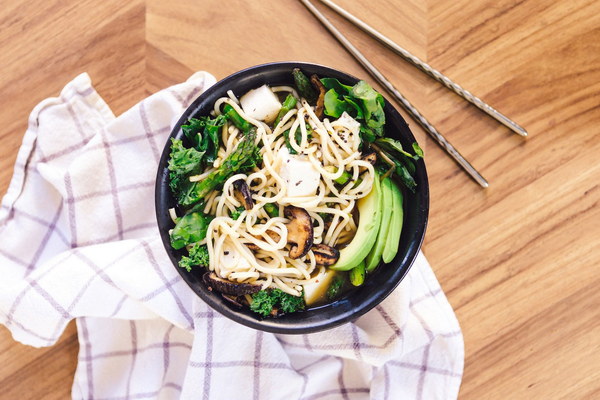Can a Yin Deficiency Constitution Be Harmonized and Improved
Yin deficiency, also known as a lack of yin energy, is a common constitution type in traditional Chinese medicine (TCM). It refers to a state where the body's yin energy, which is responsible for cooling, lubricating, and nourishing, is insufficient. Many people wonder if it is possible to restore and improve their yin deficiency constitution. In this article, we will explore the nature of yin deficiency, its symptoms, and the methods of treatment and lifestyle adjustments that can help in harmonizing and improving this constitution.
Yin deficiency can manifest in various ways, including but not limited to fatigue, dryness of the skin and mouth, insomnia, low libido, and irritability. The root cause of yin deficiency is often due to overexertion, excessive stress, poor diet, and inadequate sleep. To address this imbalance, a combination of TCM therapies and lifestyle adjustments can be employed.
1. Acupuncture and Traditional Chinese Medicine (TCM) Treatments
Acupuncture, a key component of TCM, can be highly effective in treating yin deficiency. It involves inserting fine needles into specific acupuncture points on the body to stimulate the flow of Qi (vital energy) and balance the body's yin and yang. Herbs, such as ligustrum and rehmannia, are also commonly used in TCM to nourish the yin and improve overall health.
2. Dietary Adjustments
Adjusting the diet is crucial in addressing yin deficiency. Foods that are rich in moisture, nourishing, and cooling properties are recommended. Some examples include:
- Vegetables: cucumber, celery, lettuce, and spinach
- Fruits: watermelon, melon, and pear
- Grains: oatmeal, quinoa, and brown rice
- Nuts and seeds: almonds, walnuts, and flaxseeds
- Proteins: fish, tofu, and lean poultry
It is also important to avoid or limit spicy, hot, and fried foods, as well as excessive alcohol and caffeine, which can exacerbate yin deficiency.
3. Adequate Hydration

Drinking plenty of water is essential for maintaining a healthy yin balance. Water helps to lubricate the body and promote healthy digestion. Aim to drink at least 8 glasses of water per day and incorporate herbal teas, such as chrysanthemum or hawthorn, which are known for their cooling properties.
4. Exercise and Relaxation
Regular exercise can help to improve circulation and reduce stress, which are both beneficial for addressing yin deficiency. Gentle, cooling exercises like tai chi or yoga are particularly suitable. Additionally, incorporating relaxation techniques such as meditation, deep breathing exercises, or a warm bath can help to reduce stress levels and promote yin balance.
5. Sleep and Rest
Adequate sleep is crucial for the body's ability to restore and rejuvenate itself. Aim for 7-9 hours of quality sleep per night, and create a calming bedtime routine to help your body relax and prepare for rest.
In conclusion, while yin deficiency may seem daunting, it is indeed possible to harmonize and improve this constitution through a combination of TCM treatments, dietary adjustments, adequate hydration, exercise, relaxation, and good sleep habits. By addressing the root cause of the imbalance and incorporating these lifestyle changes, one can restore a sense of balance and vitality to their life.









